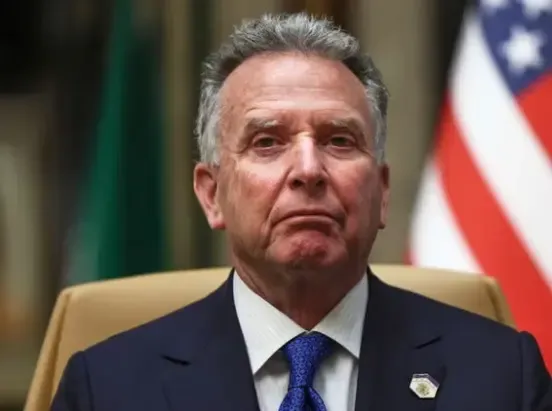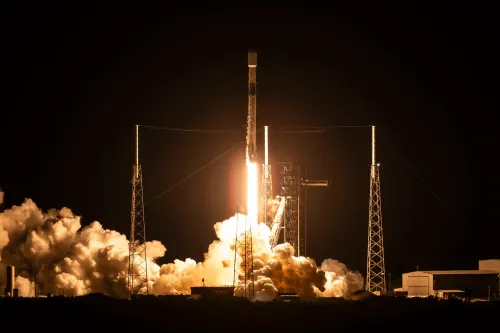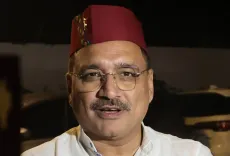US Envoy Witkoff Believes Putin Seeks Peace Ahead of Ukraine Talks

Synopsis
Key Takeaways
- US envoy Witkoff believes Putin desires peace.
- Upcoming talks in Saudi Arabia are crucial for Ukraine conflict.
- Concerns about Western skepticism towards Putin.
- Potential ceasefire in the Black Sea is on the agenda.
- Negotiations may include measures for Ukrainian children.
Washington, March 24 (NationPress) US special envoy Steve Witkoff has shown optimism ahead of crucial discussions in Saudi Arabia regarding the ongoing war in Ukraine, stating that he believes Russian President Vladimir Putin is eager to conclude the conflict that has persisted for three years.
"I genuinely feel that he wants peace," Witkoff mentioned during an interview with Fox News on Sunday.
Having met with Putin twice recently as the Trump administration strives to end the war, Witkoff expressed confidence that the upcoming talks in Saudi Arabia, involving officials from the US, Russia, and Ukraine, would yield favorable outcomes, particularly concerning a limited ceasefire in the Black Sea, as reported by CNN.
Despite apprehensions in Europe regarding Trump’s faith in Putin as a negotiating counterpart, Witkoff maintained that he believes the Russian leader is sincere in his desire for a peace deal to end the conflict.
"I simply don’t see him wanting to conquer all of Europe," Witkoff asserted.
"This situation is markedly different from what transpired during World War II."
“I take him at his word in this regard," Witkoff emphasized.
When questioned about trusting a leader who has invaded neighboring territories and whose opponents are often killed or go missing, Witkoff suggested that Western skepticism towards Putin lacks depth.
A US delegation engaged in talks later that Sunday in Saudi Arabia with Ukrainian officials about a potential partial ceasefire between Ukraine and Russia.
On Monday, US and Russian officials will continue their discussions in Saudi Arabia.
"I believe that significant progress will be visible in Saudi Arabia on Monday, especially regarding a Black Sea ceasefire for ships from both nations. This may naturally lead to a comprehensive cessation of hostilities," Witkoff stated.
Last week, Putin agreed to temporarily halt attacks on Ukrainian energy infrastructure but did not support a full 30-day ceasefire that President Donald Trump hoped would pave the way for a lasting peace agreement. Ukraine accepted Trump’s proposal for a 30-day ceasefire.
When addressing Western critiques of Putin, Witkoff expressed that every story has two sides and downplayed fears among NATO allies in Washington that a deal might embolden Moscow to attack additional neighbors.
"I simply do not believe he wishes to seize all of Europe. This is a significantly different context than what was seen in World War Two," Witkoff reiterated.
Amidst severe cuts to numerous US government programs and most foreign aid, the Trump administration has discontinued a government-funded initiative spearheaded by Yale University's Humanitarian Research Lab that monitored the mass deportation of children from Ukraine, according to lawmakers.
National security advisor Mike Waltz mentioned that discussions during the Russia-Ukraine talks included confidence-building measures, such as the future of Ukrainian children taken to Russia during the conflict.
"We are discussing several confidence-building measures, one of which pertains to this issue," Waltz informed CBS News.
Ukraine has labeled the abduction of thousands of its children, taken to Russia or Russian-occupied regions without the consent of their families or guardians, as a war crime that meets the UN treaty definition of genocide.
Russia, however, claims that it has been evacuating individuals voluntarily to safeguard vulnerable children from the war zone.
When asked about the broader goals of the negotiations, Waltz stated that once a Black Sea ceasefire is established, "we will discuss the lines of control, which represent the actual front lines."
"This will involve the specifics of verification mechanisms, peacekeeping, and freezing the lines as they currently exist," Waltz explained. "Ultimately, the aim is a broader and permanent peace."









